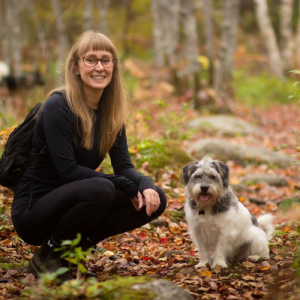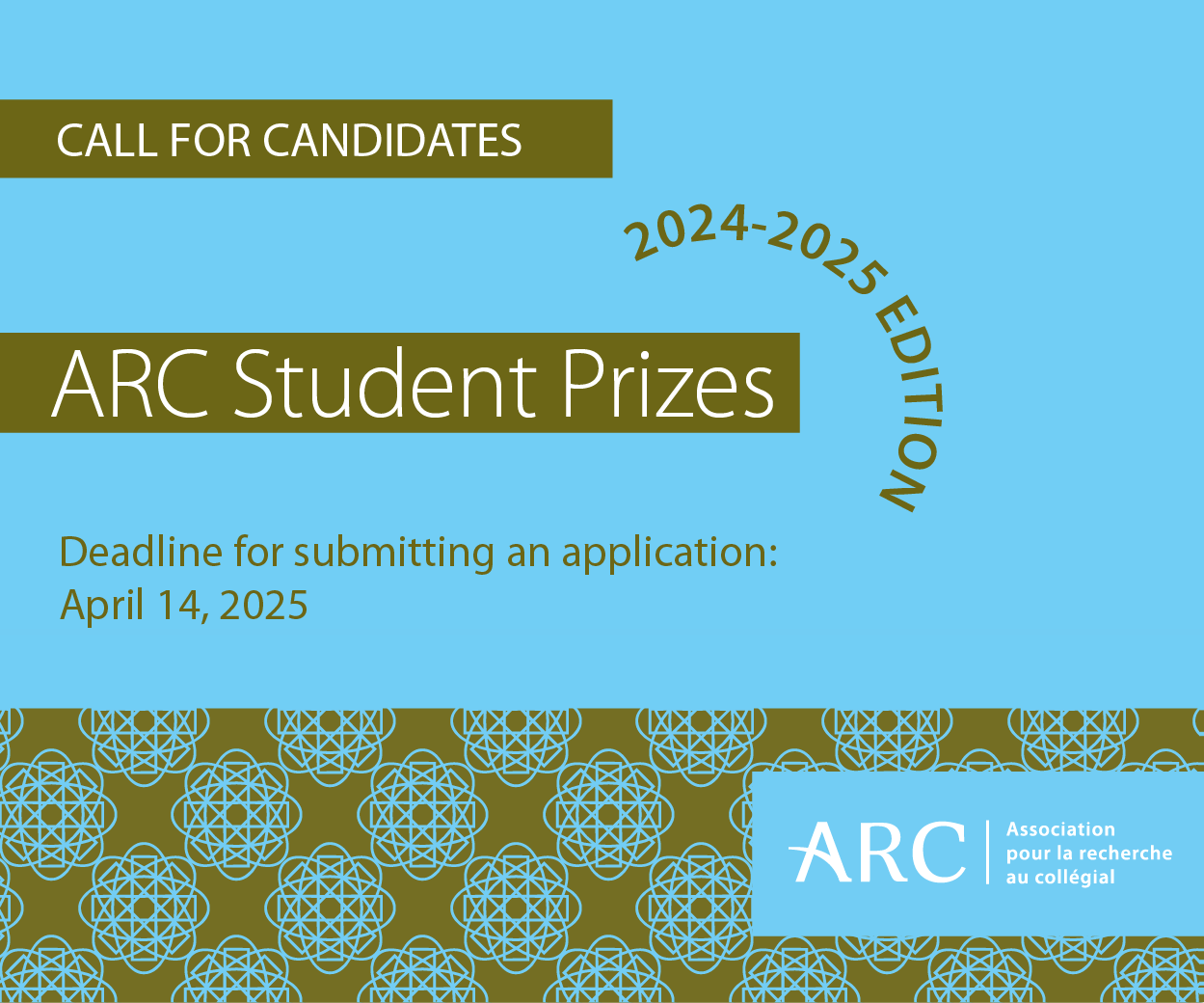Dr. Catherine Reeve is bringing a unique blend of experience and education in human and animal behaviour to Dr. Conor Barker's lab at Mount Saint Vincent University as a new post-doc in Psychology.

"Dr. Reeve brings an exceptional range of expertise to our lab, with a background in experimental psychology, animal behavior, and psychometry," says Dr. Barker. "Her experience spans lab, field, and clinical settings, which significantly enriches our discussions."
Why we do what we do
Previously a lecturer in the School of Psychology at Queen's University Belfast and a member of the institution's Animal Welfare and Behaviour Centre, Catherine left that position to return to Canada during the pandemic. Since then, she has worked as a dog behaviour consultant, helping dog owners address problem behaviours in their dogs.
"My real interest is learning and behaviour," says Catherine. "I've always just been really, really interested in why people do what they do, and why animals do what they do. There are a whole bunch of different ways to approach that question, and the one I landed on that interests me most was learning theory - how some behaviours are reinforced and how some are not and what are the consequences of that and how does that shape behaviour."
Catherine first met Dr. Barker - a teacher, psychologist, scholar of school psychology and inclusive education and assistant professor in the Department of Psychology and Faculty of Education at MSVU - through her work as a psychometrist for his private practice where he conducts psychoeducational assessments.
"We've had so many conversations about how the same process of evaluating and learning is used for both dogs and children. Some of the things we look at are: What are the emotional issues? What's being reinforced? What is the goal of these behaviors? And how can we modify them?" says Catherine. "When I'm looking at a dog and the dog's behaviour, I'm doing functional behaviour analysis, which is similar to what's used with children who might have behavioural or emotional issues in a classroom setting or at home. I became really interested in the interaction between these two things."
Redefining success
Catherine will be coordinating the Saskatchewan Adult Basic Education Partnership (SABEP), a consortium of rural regional colleges providing basic education programming for adults in rural areas of Saskatchewan. The focus of her work is on developing a better understanding of adult basic education in rural settings.
"I'm thrilled to have the chance to learn about folks' experiences in the education system, barriers to education, and how success in education is defined," she says. "Specifically, what we're looking at is redefining success in adult basic education. So, instead of receiving a GED or high school equivalent, what other measures of success can there be for people and basic education?"
Dr. Barker says the project will rely on a multi-method, community-based approach to gather and validate findings, and Dr. Reeve's extensive experience in field and quantitative research will be invaluable.
"This project is meaningful because it seeks to define success in adult education beyond traditional measures like credit attainment or employment," says Dr. Barker. "We know that increased literacy enhances health outcomes, community engagement, and family dynamics. However, how this unfolds in rural, localized settings is something the current literature hasn't adequately addressed."
For the project, Dr. Barker's lab is partnering with Great Plains College and investigators will be interviewing adult students at five college campuses around rural Saskatchewan.
"It takes a lot for somebody to go back to school. There are a lot of challenges and people have to persist quite strongly to even enroll in adult basic education, let alone finish it," says Catherine. "We'll be shining a light on that experience and helping the scientific community, and the general public understand what it's like for those people and what success really means."
Understanding how people learn
Catherine says the project is providing her with the chance to grow her understanding of how people learn, bringing together the work she's done so far with things she's hoping to learn more about.
"With this project, I'm getting a lot more experience in the human education world and what affects learning in people, and how we can support learning and emotional wellbeing at the same time," she says. "This project kind of speaks to all of those things - how people come to education later in life, what they find valuable, what success is for them, what helps them on that journey to adult basic education, and what they hope the outcomes are. It's been a really great consolidation of all the things that I'm interested in."
Together with her work on the study, Catherine is also teaching a section of introductory psychology this fall and animal behaviour in the winter. Along with her experience, she'll be able to share with MSVU students what she learned while earning a PhD in Experimental Psychology from Dalhousie University and an MA in Brain Behaviour and Cognitive Science from York University.
Human and animal connections
Even though her current focus is on human learning and behaviour, Catherine says animals have always had and will continue to play a big part in her life.
"Animals were my first love, and they still absolutely are, but I learn so much going back and forth between humans and animals, and I get such different perspectives when moving from human learning to animal learning and vice versa. It's all been extremely helpful," she says.
Catherine says she's always been around animals. She currently has a dog named Walker - a terrier mix and rescue from the SPCA who she's had for nine years; her two 17-year-old cats Sojo and Tito recently passed away.
"We were the house that took in all the stray cats," Catherine says. "Throughout my childhood, I had hamsters, fish, a bird, a newt for a while. We would also stop and pet the horses at every farm. I was always catching frogs and turtles and things - I just loved being out in the world and interacting with animals."
Changing perspectives
Whether animal or human, learning, behaviour and wellbeing have always been core areas of interest for Catherine. She's looking forward to continuing to grow her understanding through her work on the adult basic education project she'll be supporting with Dr. Barker's lab.
"I think it's going to be rewarding and meaningful for the participants and for the general public to have a different view of education and how beneficial all of the different aspects of it can be," she says.
And, in return, Dr. Barker says he's also excited to be working with Catherine on that project and hopes to collaborate with her moving forward on community studies in Nova Scotia to explore how connecting children with dog training can improve behavioural performance in schools.
"She is a dedicated professional, incredibly detail-oriented, and a joy to work with. Her ability to engage with the team and keep us on track is invaluable. Plus, she has a wonderful way of connecting with people, especially when talking about their pets," he says.













